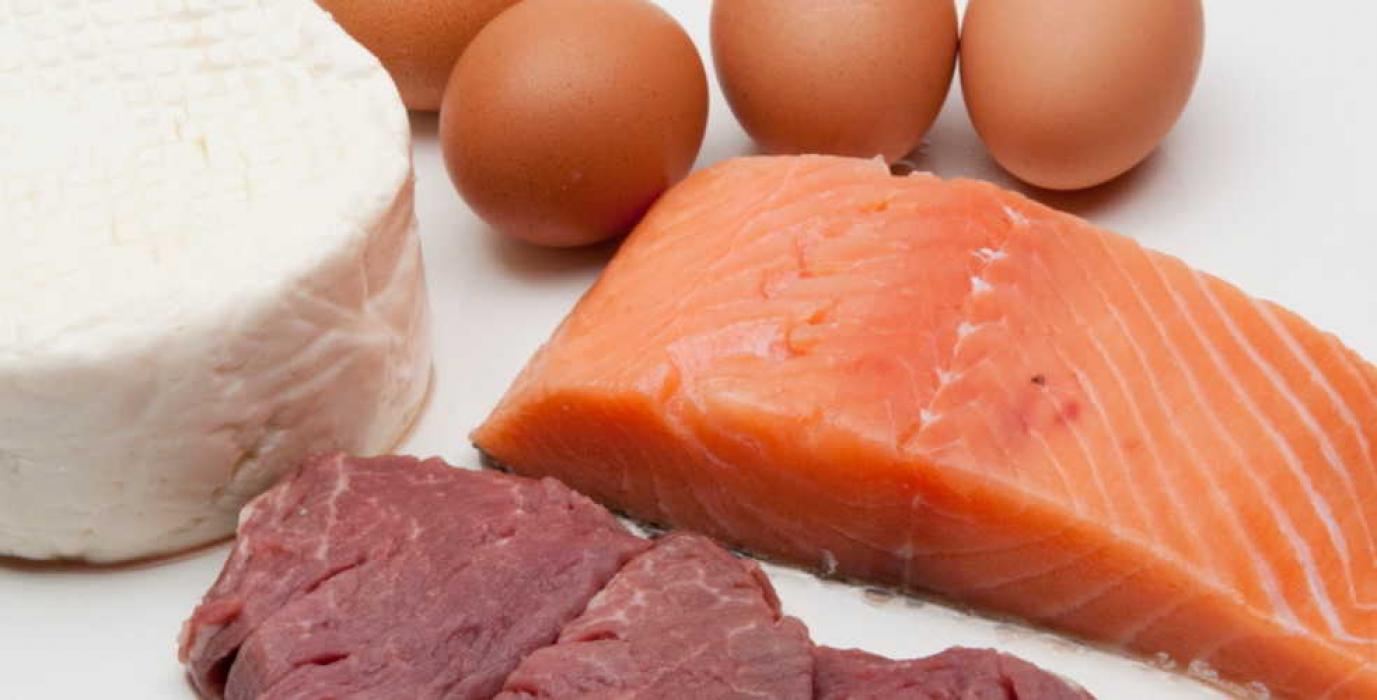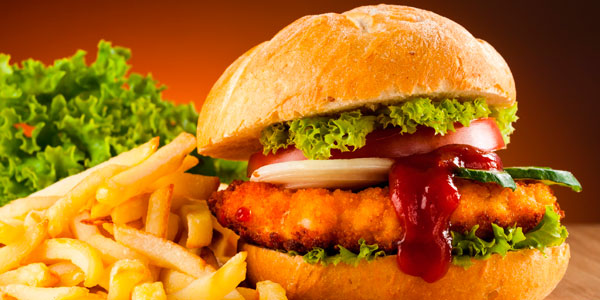The very first and most common problem that parents of a newborn baby face is the imperfection of his intestines. Colic, flatulence and abdominal pain often plague not only infants, but also older children. All this, as well as increased gas formation, bloating, diarrhea, constipation, and sometimes more serious diseases of the gastrointestinal tract, are the consequences of improper nutrition of a child or his mother who is breastfeeding. In order to avoid discomfort in the intestines and improve the process of defecation in the child, it is necessary to properly organize his nutrition and, of course, the mother’s nutrition. And for this, parents need to know which products weaken and which strengthen. Today we will talk about how to improve your child’s stool with the help of strengthening foods.
First of all, you need to know that stool is considered normal when it occurs:
- in infants who are on breastfeeding, - 3-10 times a day;
- in infants who are on artificial feeding, - 2-3 times a day;
- for children 1-2 years old - approximately 1 time per day;
- for children over 2 years old - at least 1 time every 2 days.
Of course, small deviations in one direction or another are allowed - it all depends on the child’s physiology, on his eating habits, on the climatic conditions in which he lives, on the standard of living and well-being of his family. But if the child has bowel movements more often than 10 - 15 times a day or, conversely, less than once every 2 days, it is worth thinking about what and how your baby eats. In order to improve the child’s stool, as we have already said, you need to know what foods are strong and refuse them or, conversely, introduce them into the baby’s diet, depending on the situation.
List of products that are fastened.
Naturally, each of you, when asked what products are fortified, will answer - baked goods, strong tea, bird cherry and rice. But this is far from full list fastening products. In addition, some foods become much stronger under certain conditions and methods of preparation. The body's reaction to a particular food product depends on many other factors. For example:
- for dairy products - on the degree of freshness;
- for vegetables - on the variety and degree of maturity;
- for ready-made canned baby purees in jars - from the manufacturers, or more precisely, from the concentration of certain additives that they add there, as well as from the consistency of the puree.
In order to understand exactly what foods strengthen your baby’s stool, you need to carefully introduce them into the child’s diet and monitor his body’s reaction. And we, for our part, bring to your attention a plate in which we have combined all the information about what products are fortified and how to prepare them so that their fixing effect is most effective.
| Common name | Food | Features of preparation to enhance the fixing effect |
| Cereals and pasta | Semolina | Thick semolina porridge, prepared not with milk, but with water and without adding butter. |
| Rice | Rice porridge cooked in water without adding oil, as well as rice broth. | |
| Any pasta and cereals made from durum wheat | ||
| Bakery products | White bread | Often attaches to children's cookies |
| Wholemeal bread | ||
| Drying | ||
| Baranki | ||
| Bagels | ||
| Crackers | ||
| Biscuits | ||
| Dairy products | Milk | |
| Cottage cheese | Only on the 2nd day and later | |
| Kefir | Only on the 2nd day and later | |
| Yogurt with lactobacilli | Individually, it weakens some | |
| Lean meat | Beef, turkey, hare, chicken (white) | Definitely boiled |
| Eggs | Raw, chicken | Consumption is not recommended - there is a high probability of developing salmonellosis! |
| Chicken egg white | Hard boiled egg! | |
| Berries and fruits | Persimmon | In any form, but especially unripe |
| Bananas | Greens | |
| Pomegranate | The most effective decoction is pomegranate peel | |
| Pears | Green and especially dried | |
| Quince | In any form | |
| Blueberry | The most effective decoction of dried berries | |
| Chokeberry | ||
| black currant | Decoction of fresh, frozen or dried berries | |
| Black grapes | Especially raisins and decoction from them | |
| Applesauce | It's puree, not whole apples! | |
| Vegetables | Potato | Namely, mashed potatoes cooked in water without adding sour cream or butter. And also oven-baked potatoes. |
| Eggplant | Absolutely in any form | |
| Carrot | It is believed that this vegetable normalizes the functioning of the gastrointestinal tract. | |
| Cauliflower | Boiled and also not effective for everyone | |
| Sweets | Everything sweet | Especially toffee and chocolate |
| Drinks and decoctions | Strong tea | |
| Compote of chokeberries, currants, bird cherry and | ||
| Dried fruits | ||
| Chamomile tea or chamomile decoction | ||
| Oak bark decoction | ||
| Mint tea or mint decoction | ||
| Juice | Grape | Sweet baby juice in boxes and glass bottles |
| Pear | ||
| Carrot | ||
| Apple | ||
| Other | Gelatin | Including jellied meat |
| Starch | Kissel made from berries and fruits that strengthen | |
| Black pepper | ||
| Strong meat broths | ||
| Seasonings | ||
| Everything is spicy | ||
| Salty | ||
| Roast | ||
| Green | ||
| Smoked |
Important! P If you have any problems with your child’s intestines, no matter if it’s constipation, bloating or diarrhea, you need to give your baby simple water as often as possible clean water and feed in small portions!
And remember that the same food product can have different effects on different children due to different circumstances, so be attentive to your baby, and you will definitely succeed! Good appetite to your child and, of course, health!
Published: December 3, 2015 at 11:07 amSuch a common symptom in both adults and children, such as diarrhea, can be cured only by following the correct diet. It is not for nothing that many people are interested in what foods can be eaten during diarrhea, since they help consolidate loose stools, and which should be completely excluded from the diet until all signs of the disease cease. The dietary menu for this pathology is based on dishes that relieve inflammation and do not irritate the damaged mucous membrane, and are also easily digestible, facilitating the functioning of the gastrointestinal tract.
To understand what foods are recommended to eat for an upset stomach, you should remember the purpose of the diet for diarrhea. Its main provisions are the normalization of intestinal function and the reduction of putrefactive, inflammatory and fermentation processes in it. Also, a properly selected nutrition system should protect the gastrointestinal tract from mechanical, thermal and chemical irritants. For diarrhea, these provisions will be met by products that do not cause fermentation in the intestines and do not increase the secretion of gastric juice, and also contribute to the consolidation of loose stools. It is thanks to them that intestinal disorders can be cured quite quickly. Also, to facilitate the work of the intestines, during diarrhea you can eat only in minimal portions, but often (fractional meals).
What foods can you eat for diarrhea?
 The list of permitted foods for diarrhea in adults is significantly smaller than those prohibited for this illness. But still, there are not enough of them to diversify the meager menu prescribed to the patient during diarrhea. What exactly products help against diarrhea and are approved by specialists for use by an adult patient?
The list of permitted foods for diarrhea in adults is significantly smaller than those prohibited for this illness. But still, there are not enough of them to diversify the meager menu prescribed to the patient during diarrhea. What exactly products help against diarrhea and are approved by specialists for use by an adult patient?
- Every day you are allowed to eat crackers made from white bread. They are necessary in the diet during diarrhea, as they help consolidate feces by absorbing excess water;
- Meat is also allowed to be consumed for diarrhea. Just don’t forget that it should be represented by low-fat varieties - chicken, rabbit and veal;
- Fish is also recommended by nutritionists only lean;
- For dairy products for diarrhea, only low-fat kefir and fresh calcined cottage cheese are allowed;
- If you have an upset stomach, you should also eat fruits, especially bananas and peeled apples.
All of the above fixing products for diarrhea not only facilitate the work of the gastrointestinal tract, but also contribute to its speedy cessation.
 It is quite easy for a patient suffering from indigestion to prepare a varied menu from the permitted products. What healthy dishes do nutritionists offer? The most popular among many people suffering from diarrhea were the following:
It is quite easy for a patient suffering from indigestion to prepare a varied menu from the permitted products. What healthy dishes do nutritionists offer? The most popular among many people suffering from diarrhea were the following:
- Meatballs, meatballs and cutlets are prepared from meat. But instead of bread, it is advisable to put boiled rice in the minced meat, and also not to add garlic, pepper and onion. Boiled meat soufflé is also recommended for use for diarrhea;
- Fish can be consumed either as a whole piece or in the form of cutlets. But seafood is not welcome on the diet menu;
- Soups should definitely be prepared as a first course for diarrhea. Which of them will best affect the inflamed intestines? Of course, mucous, with the addition of oatmeal, rice or semolina;
- Porridges for diarrhea are prepared exclusively with water. Dairy products, butter or cream, are added only after acute diarrhea has ended;
- During diarrhea, vegetables should be consumed only in the form of a thin puree or decoction added to soup;
- Eggs should also be eaten in small quantities. For diarrhea, it is best to make a steam omelet from them;
- What fruits to prefer when you have an upset stomach, and what dishes to prepare from them for dietary nutrition? For this pathology, it is best to opt for apples that can be baked. But you should definitely remember that you need to remove the skin from them before cooking.
Experts also recommend preparing dishes for diarrhea from permitted foods in compliance with certain rules, thanks to which food entering the intestines will not provoke an exacerbation of diarrhea. The main one will be that food should be cooked for a longer period of time than with a normal diet and only by boiling in water, steaming or baking without a golden brown crust in the oven. Also, all products for patients with diarrhea should be thoroughly crushed, ready or raw, and mashed to a puree. We should not forget that while preparing food it is necessary to observe the rules of personal hygiene so as not to introduce into the gastrointestinal tract from poorly washed hands an additional portion of pathogenic microorganisms that can significantly increase diarrhea.
Nutrition determines the degree of saturation of the body with useful substances and ensures the overall functioning of a person.
But, despite the obvious benefits, eating some dishes can cause a completely unpredictable gastrointestinal reaction. For example, constipation, or vice versa, diarrhea. The same foods weaken and strengthen the digestive canal in people, if each of them is characterized by disorders in the process of evacuation of feces. When diseases are chronic, as a rule, patients know the peculiarities of their diet and rarely deviate from the diet prescribed by the doctor. And for those who are predisposed to intestinal problems, it will be interesting to know what foods strengthen the stool.
What foods can strengthen the intestines?
Products that qualitatively strengthen the digestive tract include:
- kefir 2-3 days old (contrary to popular belief that fermented milk products weaken the intestines, promoting diarrhea);
- bananas, potatoes - despite the plant origin of such foods, banana and mashed potatoes are similar not only in their consistency and ability to perfectly quench the appetite. Each of them strengthens the digestive tract, even to the point of constipation, if the patient has problems with bowel movements, and without stimulation (enemas), this process does not occur;
- semolina porridge, boiled white rice - dishes that strengthen the digestive tract during diarrhea, but consuming them in excess can lead to constipation;
- people predisposed to problems with bowel movements should take care that the menu does not include baked goods, as well as muffins made from premium flour - the use of such will become big problem due to high strengthening capacity;
- if bowel movement does not occur naturally, you have to use laxatives, as well as give cleansing enemas, such patients need to give up cocoa, coffee, strong tea, hot chocolate, and red wine. All these drinks contain a high concentration of tannin - a tannin. Its content in products will be higher, the more natural their origin. Tannin is a fairly serious ingredient, the overuse of which is very dangerous for human health. The substance holds together all parts of the digestion; the spectrum of negative effects covers not only the intestines, but also the stomach, which directly predisposes to the development of gastritis. Treating this inflammation along with constipation is not an easy task for the gastroenterologist;
- The list of products that strengthen the stool well includes smoked sausages, fish, lard, and meat;
- Apple puree will perfectly strengthen the stool, although eating these fruits in their pure form will not provide a similar effect;
- all types of pasta - fixing products, are contraindicated for use by patients with chronic colitis and a high tendency to stagnation of feces.
But you can benefit from products that help slow down intestinal motility - they are prescribed for diarrhea in adults and children in order to consolidate, but not for all types of diarrhea, but only in cases of functional disorders.
Alternative solutions to constipation
If constipation does occur and bowel movement does not occur within 3 days, action must be taken. Ideally, you should contact a gastroenterologist or therapist: a specialist will refer you for an examination to find out why stagnation of feces has occurred, and whether there are any obstacles to their movement along the tract in the form of adhesions or tumors. If the problem is only nutritional errors, he will prescribe a diet.
If it is not possible to get an appointment with a doctor, you can try to provoke a bowel movement yourself. Since even laxatives can cause allergic reaction, from reception medicines It’s better to refuse, but try to cleanse the intestines in a more loyal way - by drinking tomato juice with the addition of a tablespoon of vegetable oil per half a glass of the finished drink.
If the expected effect does not occur, you can give a cleansing enema. Currently, pharmacy shelves are rich in an assortment of these disposable devices. It is better to purchase a micro enema - its volume does not exceed 25 ml, but for a person this is enough, since the effect is aimed at irritating only the lower intestines.
Attention! Cleansing with an enema cannot be done in cases where the patient has external or internal hemorrhoids complicated by bleeding, rectal tumors, or anal syphilis.
There is a wide range of strengthening products, but only a gastroenterologist can correctly create a menu, taking into account the patient’s main problem, as well as concomitant pathologies. If you ignore your doctor’s instructions, consciously continue to eat foods that strengthen the intestines, relying on subsequent enema or taking laxatives, big health problems will arise over time. The human body cannot function normally if it has to be constantly stimulated to do so. Therefore, you need to reconsider your diet and heed the advice of a specialist.
Foods that cause constipation often cause discomfort in the intestines, as a result of which many people have to resort to laxatives to normalize the gastrointestinal tract. In addition, such food promotes increased passage of gases, colic, and bloating.
Painful acts of defecation and delayed bowel movements are typical not only for infants and the elderly, but also for pregnant women, adolescents, young women and men.
When a person experiences problems with digestion, ultimately leading to difficult bowel movements, painful bowel movements, cracks, and itching of the anus, it is urgent to eliminate foods that cause constipation from your diet, or replace them with laxative fruit and vegetable juices and purees.
Often the problem cannot be solved by sufficient fluid intake, establishing a daily routine, healthy sleep, exercise. The only correct solution in this situation is to change your diet.
A corrective diet has a positive effect on intestinal motility, eliminates discomfort and pain.
What products strengthen the chair?
Bananas top the list of stool strengthening foods. It is worth considering that constipation is caused by unripe fruits containing starch. They are easily distinguished by the green color of their peel. It takes a lot of time for the body to digest starchy compounds, so the act of bowel movement is delayed.
Ripe bananas contain a lot of pectin, which removes retained fluid from the body. If you eat ripe fruits, they have a laxative effect, so it is especially important for women nursing babies to take this fact into account when eating.
Cottage cheese is considered an insidious product. Since it is rich in calcium, which is effectively absorbed by the walls of the stomach (1 g Ca / 100 g of product), its excess leads to dysfunction of the colon.
Kefir, milk, cheese, curdled milk, and yogurt contain a lot of casein and no fiber at all, so Constant consumption of dairy products can slow down motor skills, as a result of which a person begins to be bothered by persistent constipation.

Fast food contains a lot of empty calories, dyes, additives, which gives the right to classify it as a product poor quality. Buying semi-finished products, frozen meals, fried pies, sandwiches can lead to problems with stool. For people who are concerned about constipation, fast food products are strictly contraindicated.
Eating various types of meat (fish, pork, veal, beef) without additional fiber in the form of vegetables and fruits leads to a long-term absence of the urge to defecate. The situation becomes even more aggravated when pasta, potatoes, and rice are added to meat products. Red meat contains compounds and fats that take on average more than 12 hours to break down.
For the intestines, this is a heavy, quickly digestible food that causes constipation. To normalize intestinal function, it is worth replacing meat dishes with lentils, brown rice, and beans.
Butter products (buns, sweets), fatty, coffee products weaken intestinal motility, retaining feces in the body. In addition, the rich menu contains carbohydrates and sugars, which contribute to irritation of the intestinal mucosa. To enhance peristalsis, it is important to eat yeast-free baked goods made from wholemeal flour and whole grains.
If a person does not suffer from anemia, one should avoid iron-containing foods (apples, beets), replacing them with pumpkin, cereals, and legumes. The problem of constipation and anemia can be solved by adding dried apricots to food. In addition to iron, this product has a laxative effect on the body.

The hard shell of popcorn corn kernels is difficult to digest. A huge amount of the product eaten is dangerous for the health of a person suffering from intestinal inflammation, mechanical damage to the walls of the colon, pain in the intestines, and the development of intestinal obstruction. Popcorn is especially dangerous for young children whose digestive tract is not fully formed.
Persimmon peels contain indigestible dietary fiber. Therefore, if there is general weakness of the abdominal muscles, it is recommended to exclude the fruit (with the peel) from your menu. The pulp can be safely consumed. Since persimmon peels tend to form stones in the intestines (bezoars), they should not be eaten by people with diseases of the gastrointestinal tract. The recommended daily dose of persimmon for healthy people is 1 pc. per day. For unsystematic constipation, you can eat the fruit by peeling the skin from the fruit.
Flour intended for making matzo is also very poorly digestible. human body. Matzo food is not suitable for adults and children. It should be abandoned or consumed in minimal quantities.
Cactus fruits, despite their usefulness and amazing taste, are difficult to digest due to the grains they contain. With frequent consumption of fruits, there is a load on the intestines, intestinal obstruction and constipation develop, and peristalsis is weakened. It is worth noting that consuming a significant amount of liquid does not help to cope with the problem, so the fruits should be discarded.

Celery contains a lot of dietary fiber, which the intestines are unable to digest. For safety reasons, this product should be excluded from the menu.
Pomegranate juice is rich in tannins, which contribute to the retention of bowel movements. Traditional medicine recommends using this fruit to treat diarrhea, but not constipation.
Fatty foods harden the stool, slowing down the digestion process. It is especially dangerous to use them after the age of 30. If constipation often makes itself felt, bacon, sausages, fried, fatty foods, and baked goods should leave the refrigerator shelves.
Cheese, milk, cottage cheese, and kefir do not contain any dietary fiber that promotes normal digestion. Large quantity protein, fat, calcium and a minimum of thiamine negatively affect the functioning of the intestines, slowing down the process of food digestion.
Marinades, drinks containing caffeine, strong tea, coffee, pickles, and raw foods that contain monosodium glutamate cause dehydration.
Frequent consumption of strong coffee and caffeine-containing drinks when the body is dehydrated leads to problems with the gastrointestinal tract. Being neurostimulants, they lead to disruption of the normal rhythm of impulses of the autonomic nervous system and a prolonged absence of bowel movements.
People prone to constipation should not consume:
- canned meat and fish;
- baked goods made from premium flour (cakes, bread, buns, cookies);
- hard boiled eggs;
- rice and dishes made from it;
- pasta;
- millet, semolina, buckwheat porridge;
- fatty meat and fish broths;
- wine from red grape varieties;
- potato;
- chocolate products;
- pears, dogwoods, lingonberries, pomegranates, blueberries and juices from them.
All of the above products contain substances that paralyze the functioning of the intestinal muscles, which, interacting with enzymes, provoke a delay in bowel movement. When these products enter the body, the intestinal mucosa does not recognize the contents, as a result of which the signal for defecation is not received.
What are the dangers of foods that cause constipation?
Constantly eating light, quickly digestible food is fraught with:
- damage to the intestinal walls;
- impaired stomach sensitivity;
- incorrect transmission of nerve impulses;
- hormonal imbalances;
- reduction in muscle tone and strength;
- disorders of reflex reactions in people prone to cholecystitis, gynecological diseases, ulcers, hemorrhoids;
- disturbances in the functioning of the nervous and endocrine systems;
- toxic poisoning;
- overdose of minerals and vitamins;
- difficulty passing bowel movements due to impaired muscle contractility.
To get rid of constipation, it is enough to exclude from the diet foods that provoke stool constipation.. Despite the benefits, dietary content, vitamin content, even the most exotic products that have a beneficial effect on the body should remain on store shelves.
Who should avoid strengthening products?
In healthy people, the norm is the formation, under the influence of certain substances, of a food bolus that easily moves through the rectum. When a person consumes easily digestible foods, the formation of a food bolus of the desired consistency is disrupted. As a result, light food is quickly digested without remaining in the body, which is why there is no necessary volume for pushing food through the intestines.
Constipation occurs when eating easily digestible foods that do not require intense work on digestion from the digestive tract. Under the influence of enzymes and gastric juice, such food decomposes for a long time and is absorbed into the blood.
People who are prone to:
- slow bowel syndrome;
- weakening of peristalsis;
- formation of polyps;
- weakening of smooth muscles.
How to prevent the negative effects of constipating foods on the body
Anyone who has problems with bowel movements is recommended to:
- Drink as much fluid as possible.
- Choose products from high content indigestible substances.
- Include foods rich in fiber in your diet. The peculiarity of fiber is its ability to not be digested. This product itself already creates volume. When it enters the body along with liquid, it swells, the resulting food bolus easily cleanses the intestines, normalizing bowel movements. In addition, the lump, moving through the intestines, removes excess cholesterol, glucose, and carcinogenic substances from the body.
People prone to spastic constipation should limit their fiber intake, replacing it with small portions of boiled or baked vegetables.
- Eat bread with bran and cereals.
- Stick to a diet.
- Get rid of constipation by drinking a glass before breakfast warm water with lemon juice.
- Do not neglect grated vegetable salad made from carrots, herbs, beets, cabbage and seasoned vegetable oil. If you don’t know how to replace your favorite pasta and fast food, a salad is exactly what you need.
- Eat tomatoes, pumpkin, zucchini, sweet peppers, cucumbers and dishes made from them (these vegetables are especially valuable when baked).
- Include raw foods in your diet as often as possible. pumpkin seeds. They have a laxative effect.
- Avoid whole grain cereals (such as brown rice) with raisins and walnuts.
- Include white cabbage in the menu (it should be added to stewed, boiled, baked dishes, and also eaten raw, used as casseroles and steamed dishes).
- Eliminate persistent constipation with liquid vegetable soups. At night, it is recommended to drink a glass of low-fat kefir with a spoon of olive oil.
- Maintain a daily routine.
- Avoid “dangerous” foods (if you want to eat deli meat, you should give preference to a vegetable side dish rich in fiber; it is also important to avoid starchy junk food).
People with bowel problems need to know what foods cause constipation and how to eliminate them from their diet. The balance, usefulness, calorie content, and consistency of food have a beneficial effect on the intestines, normalizing the frequency, ease, and quantity of bowel movements.
Don't be afraid to adjust your diet. The habit of experimenting can help avoid many intestinal problems, eliminate existing diseases of the gastrointestinal tract, and normalize metabolism.





